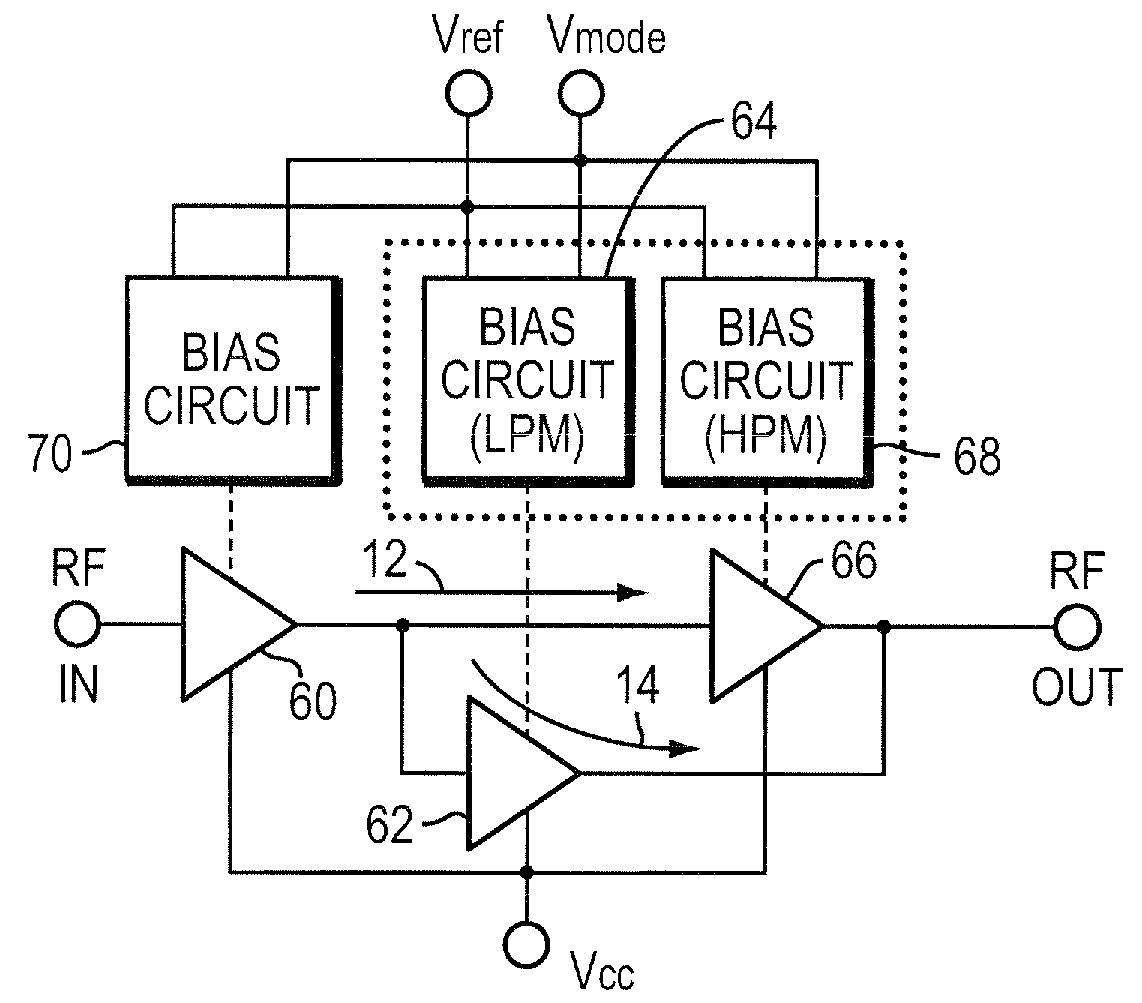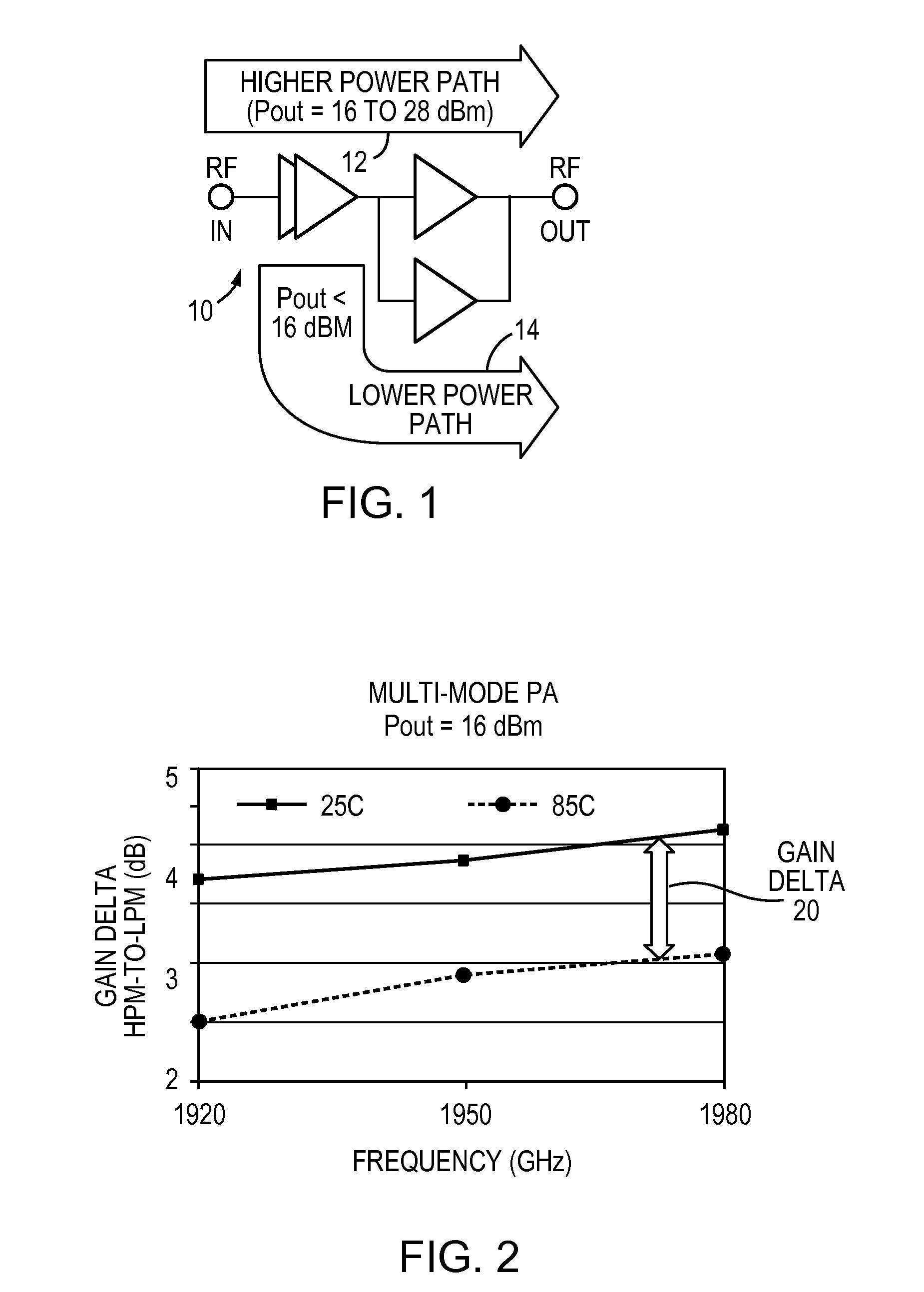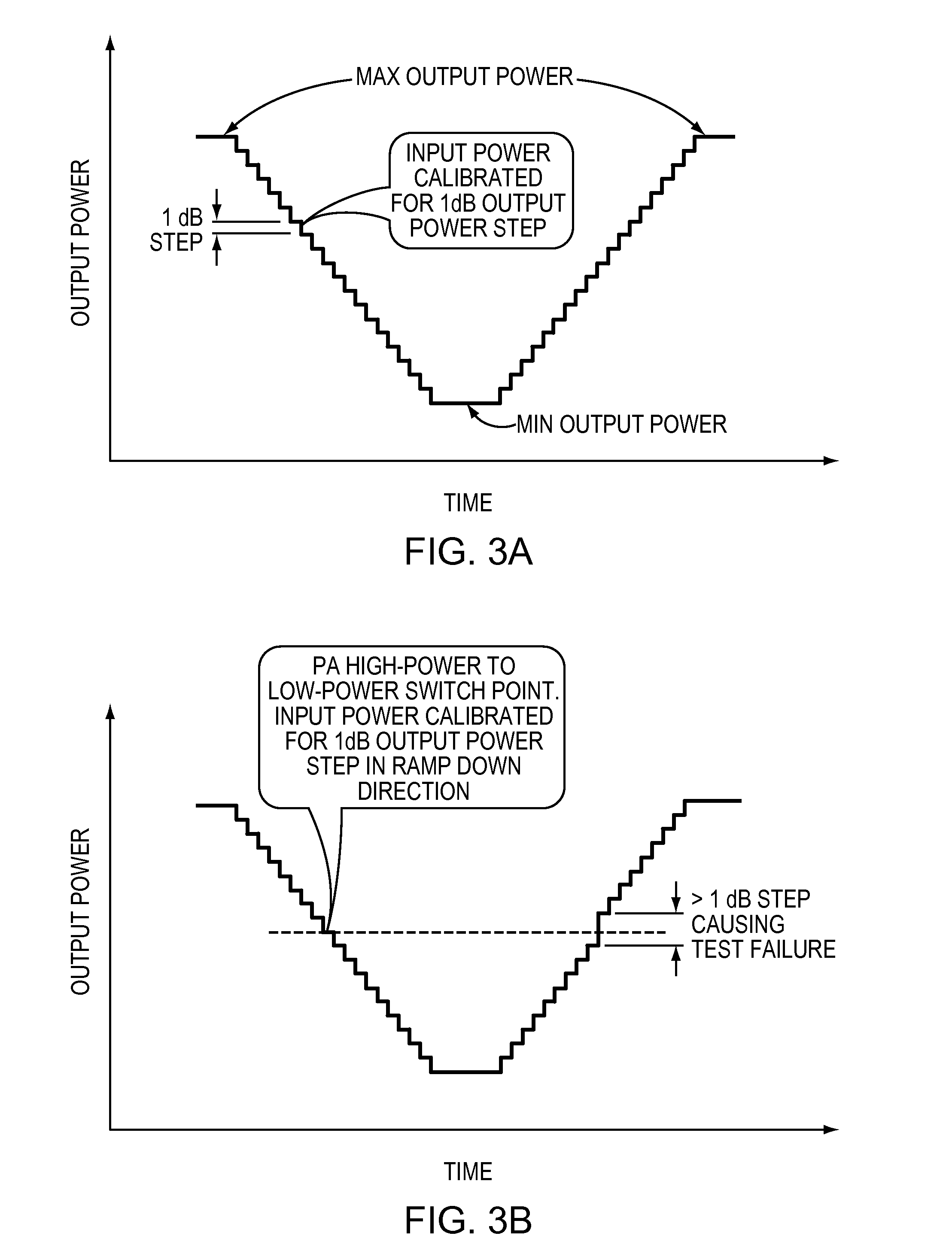Multi-mode power amplifier with low gain variation over temperature
- Summary
- Abstract
- Description
- Claims
- Application Information
AI Technical Summary
Benefits of technology
Problems solved by technology
Method used
Image
Examples
example 1
[0036]In FIG. 5, R1 is 330 ohms and Vref is 2.85V, the following applies:
TEMPV1V2IrefHIeq2IbHIccqH25° C.1.25 V2.45 V1.25 mA170 uA166 uA30.0 mA85° C.1.19 V2.32 V1.66 mA360 uA348 uA39.5 mA
example 2
[0037]In FIG. 7, R2 is 1.1 Kohm, R3 is 2 kohm and Vref is 2.85V, the following applies:
TEMPV3V4IrefLIeq5IR3Iccq6IbLIccqL25° C.1.25 V2.45 V365 uA166 uA609 uA360 uA166 uA 30 mA85° C.1.17 V2.29 V508 uA240 uA511 uA500 uA240 uA24.6 mA
[0038]The above tables demonstrate that the output DC collector current for the higher power amplifier, IccqH, of FIG. 5 increases when temperature is raised, while the corresponding current for the lower power amplifier, IccqL, decreases when temperature is raised. Please note that the base current to the output transistor in each case rises with temperature, but that the rise in IbL is much reduced compared to the increase in IbH. In this instance the loss of DC current gain for Q7 with rising temperature dominates the increase in base current, IbL, resulting in a reduction in IccqL with temperature.
[0039]There are several approaches and alternatives to explaining the temperature response of the circuit in FIG. 5 compared to that in FIG. 7. Perhaps the be...
PUM
 Login to View More
Login to View More Abstract
Description
Claims
Application Information
 Login to View More
Login to View More - R&D
- Intellectual Property
- Life Sciences
- Materials
- Tech Scout
- Unparalleled Data Quality
- Higher Quality Content
- 60% Fewer Hallucinations
Browse by: Latest US Patents, China's latest patents, Technical Efficacy Thesaurus, Application Domain, Technology Topic, Popular Technical Reports.
© 2025 PatSnap. All rights reserved.Legal|Privacy policy|Modern Slavery Act Transparency Statement|Sitemap|About US| Contact US: help@patsnap.com



